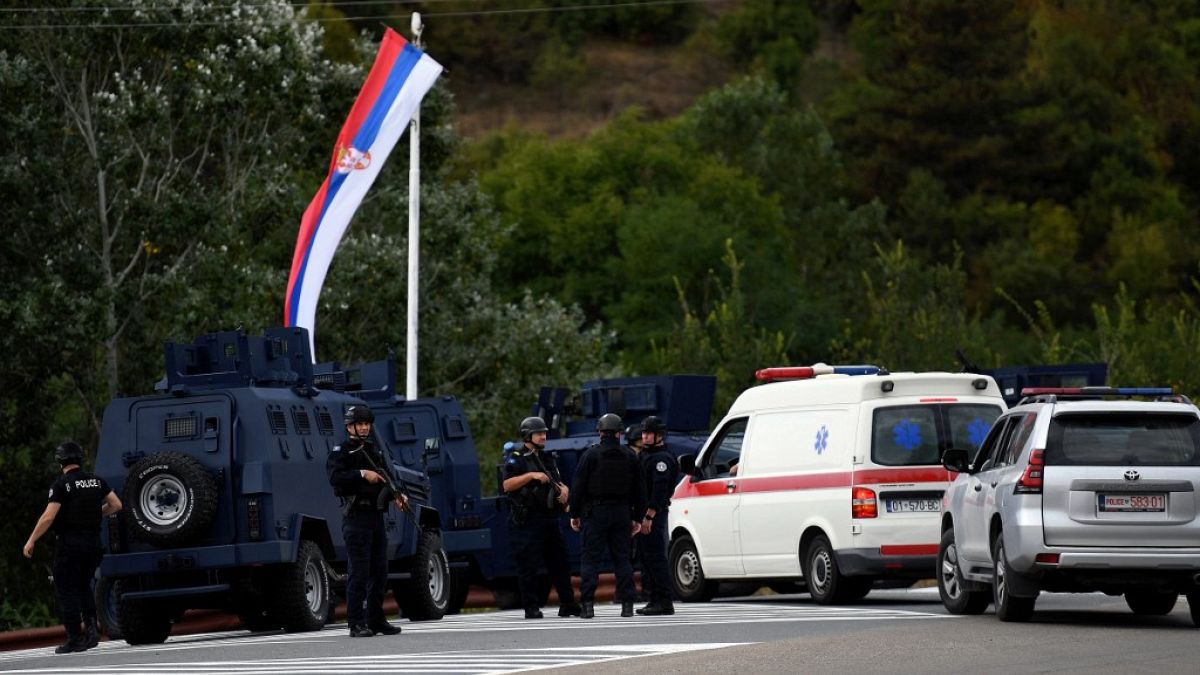The incident comes as tensions ramp up between Kosovo and neighbouring Serbia, which does not recognise the independence of its former province.
The Kosovar police regained control of a monastery, where around thirty armed men had taken refuge for several hours after a police officer was killed early on Sunday.
At a press conference, the Interior Minister, Xhelal Sveçla, said, "We have regained control of this area after several battles".
Three attackers were killed, said the minister, who also announced the arrest of two wounded men who were in "uniform". He did not add further details, only mentioning the arrests of four others who were offering support to the group. The latter were arrested outside the monastery area.
The incident comes after one police officer was killed and another injured in northern Kosovo as tensions continue to rise in the region.
Authorities in the capital Pristina condemned the killing as a “terrorist” act and accused “organised crime supported by officials in Belgrade”.
The two policemen were patrolling near a road reported as blocked when “the police unit was attacked from different positions with heavy weapons, including grenades,” according to a police statement.
Albin Kurti, immediately castigated the attack, saying it was "carried out by professionals, masked and equipped with heavy weapons. We condemn this criminal and terrorist attack", he wrote on social media.
“Organised crime, with financial and logistical support from Belgrade officials, is attacking our country,” Kurti added.
President Vjosa Osmani agreed, saying: “It’s an attack on Kosovo. These attacks prove, if it was still necessary, the destabilising power of criminal gangs, organised by Serbia, who have been destabilising Kosovo and the region for a long time”.
She went on to call on the country’s allies to help support the country "in its efforts to establish peace and order and preserve sovereignty over the entire Republic of Kosovo".
Serbia, supported in particular by Russian and Chinese allies, refuses to recognise the independence of its former province.
Kosovo has a population of 1.8 million inhabitants who, although overwhelmingly of Albanian origin, include a Serbian community of around 120,000 people.
Since a 1999 conflict which left 13,000, mostly Kosovar Albanians, dead, relations between the two former enemies have been getting worse and worse.
Northern Kosovo, which is home to much of the country’s Serbian community, is the scene of recurring unrest.
The tension there ramped up in May after Kosovar authorities chose to appoint Albanian mayors in four municipalities with a Serbian majority.
That decision triggered one of the worst episodes in the history of tensions in the north of the country in years, with protests, the arrest of three Kosovar police officers by Serbia and a violent riot by Serbian demonstrators which saw more than 30 injured people among NATO peacekeeping forces.
The international community has urged both parties to de-escalate the conflict on several occasions, stressing that the potential accession of Belgrade and Kosovo to the European Union could be jeopardised by this renewed violence.
Ten days ago, though, discussions between Albin Kurti and the Serbian President, Aleksandar Vucic, failed after just a few hours.
In a speech to the United Nations General Assembly last week, Vucic accused the West of hypocrisy, arguing that recognition of Kosovo was based on the same arguments Russia used to invade Ukraine.
